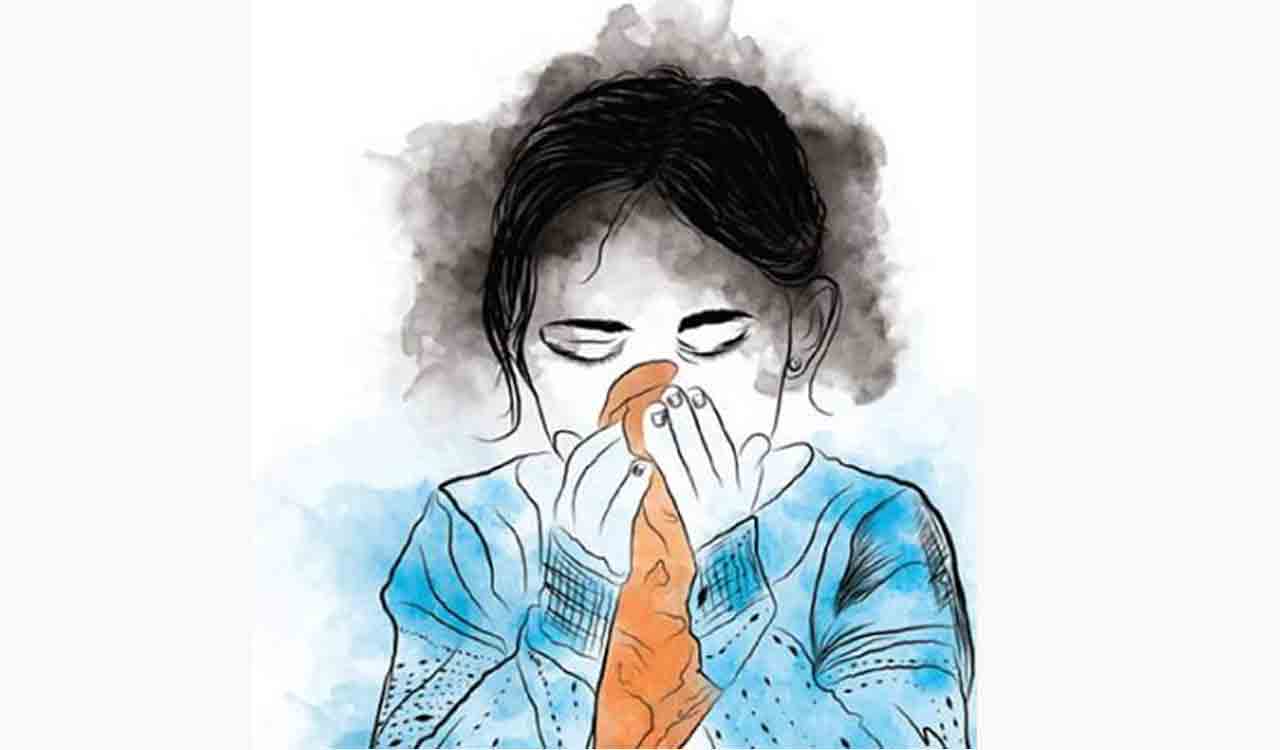
<!–
–>
12 lakh trees being cut in Vikarabad to make way for Navy’s VLF Radar Communication System
Published Date – 20 March 2024, 11:15 PM

Representational Image
Hyderabad: Telangana is set to face a significant public health crisis triggered by a pollen tsunami due to massive tree felling being taken up at the Damagundam forest in Vikarabad to make way for the Indian Navy’s Very Low Frequency (VLF) Radar Communication System.
As authorities go ahead with the decision to cut nearly 12 lakh trees, the operations could trigger a massive pollen tsunami due to the absence of tree barriers, exacerbating health risks. As a result, the urban areas in Telangana are expected to experience a 200 per cent increase in pollen accumulation, leading to an exponential rise in allergies. By estimates, the number of people who will knowingly or unknowingly suffer from allergies will be an additional one crore in Telangana.
Noted pulmonologist from Hyderabad Dr Vyakarnam Nageshwar, who recently submitted a detailed report on the impact of felling 12 lakh trees on public health to the National Green Tribunal (NGT), warned that the massive deforestation will not only be a disaster for climate in Telangana but also trigger a pollen tsunami, which will be very difficult to deal with.
“If such massive deforestation is not avoided, it could lead to disastrous consequences as this phenomenon, coupled with rising temperatures, sets the stage for a potential pollen tsunami that can be compounded by escalating temperatures such as the one we have seen in Brazil,” he warned.

The unprecedented temperature surge, compounded by deforestation in the Damagundam forest, poses a severe threat to public health, potentially precipitating a surge in hospitalisations and emergency admissions, he said.
Pollen particles may traverse vast distances through the wind and given the absence of natural tree barriers, heightening the risk of allergic reactions and respiratory ailments among the nearby populace in Hyderabad city, situated a mere 70 km away.
The prolonged pollination periods resulting from warmer climates and increased carbon dioxide levels will further exacerbate pollen allergies, affecting not only allergic individuals but also those previously unaffected.
“Rising temperatures are often accompanied by elevated levels of atmospheric carbon dioxide (CO2). Plants use CO2 during photosynthesis and higher CO2 concentrations can enhance plant growth and pollen production,” he said.
Warmer temperatures can trigger plants to flower earlier than usual. As a result, pollen production may begin sooner in the season, contributing to a longer period of pollen exposure for allergy sufferers.
Recent studies indicate that urban areas may experience a 200 per cent increase in pollen accumulation due to elevated carbon dioxide levels, leading to a surge in asthma attacks, respiratory issues and emergency hospital admissions.
<!–
–>
Source | Powered by Yes Mom Hosting






